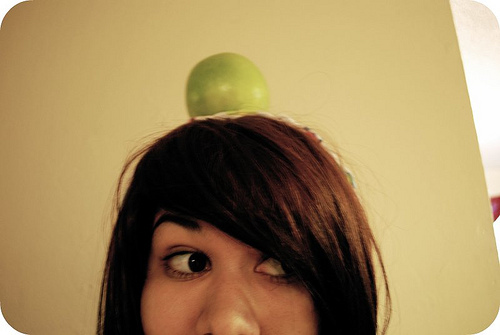7 Mistakes Your Brain Makes Every Day -- And How to Fix Them
Geege Schuman stashed this in Life Hacks
Stashed in: Learn!, Decisions, Brain, Awesome, So you're saying there's a chance...., Mindfulness, Mindfulness, brainy brains
3. You convince yourself that your bad decisions are good.
Ever tried to convince yourself that buying that extra pair of shoes you didn’t need wasn’t such a bad decision after all? If so, you were hit by cognitive dissonance.
Cognitive dissonance occurs when you have two opposing ideas that you can’t simultaneously hold in your mind. You want to think of yourself as an astute decision-maker, and a lousy decision is directly opposed to this image. So you end up convincing yourself that the decision was a good one to make it consistent with your self-image.
The best way to overcome cognitive dissonance? Be mindful of your tendency to rationalize bad decisions, so you’re more aware of when you’re doing it. And when you’re aware that you’re doing it, make a conscious effort to accept that you occasionally make bad decisions (and that’s fine as long as you learn from it). Because you’ve let go of the idea of being an astute decision-maker, you can now accept that you made a bad decision. The last step is to resolve to learn from the bad decision.
So by using mindfulness, you’ll have replaced your tendency to rationalize bad decisions with the ability to learn from them. Your decision-making skills can only improve over time.
You know what's amazing? We become more rational once we realize just how emotional we are. Talk about counter intuitive.
Agreed. It's rational to understand that we're feeling a certain way because of emotions.
That, in turn, makes us feel like there's logic to what we're feeling.
2. You incorrectly predict the odds.
Imagine this. You toss a coin, which has 50/50 chance of turning up heads or tails. Let’s say the coin’s turned up tails for the last 23 consecutive times. Surely the next time you toss the coin it’s going to turn up heads. Right?
Wrong!
The truth is the odds don’t change. They’re still 50/50. The past 23 tails don’t affect the probability of the next toss in any way whatsoever. Despite knowing this fact, you have this tendency to expect an irrational outcome based on past results. The gambler’s fallacy is based on this glitch in our thinking.
But there’s a simple solution: use a mindfulness-based approach. Here’s what the approach involves: Pause. Take a deep breath.
Taking a deep breath disconnects you from your irrational mental tendencies. It forces you to pause, and reconnects you with your rational self. It creates some spaciousness in your thinking. Do this and you’re much less likely to be seduced by your irrational thinking. Try it. I guarantee you’ll be impressed.
So you're saying there's a chance...
Good catch!
Also from Han Solo in Star Wars: "Never tell me the odds..."











9:46 AM Oct 13 2014